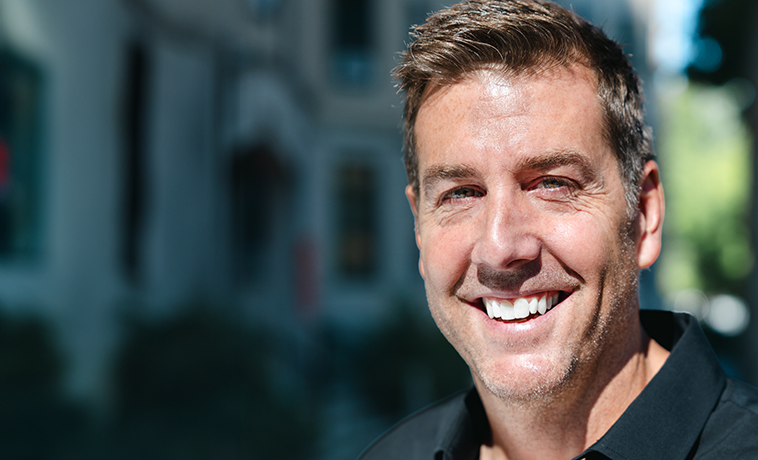Spike Lee talks film and fame
By Christine Savage (’11)
In high school, Spike Lee saw a Bruce Lee film in Times Square. After the movie, he watched the audience as it moved onto the street.
“There were like 5,000 kids running up and down 42nd Street doing flying kicks and hitting themselves up and down the head with nunchucks,” said Lee. “And then it popped at me that they just saw this Bruce Lee film and all think they’re Bruce Lee. This is powerful stuff here.”
This was years before Lee’s own films would influence a new generation of moviegoers (one of which—“Do the Right Thing”—critics worried, might even incite riots among them). But, he told a packed auditorium at the George Sherman Union Wednesday night, he could already feel the pull—and the power—of filmmaking.
The prolific director, producer, writer and actor visited Boston University on Oct. 6, to speak about his life, his work and the importance of film at an event organized by the College of Communication, Dean of Students Office, Roxbury International Film Festival and Color of Film Collaborative—with the help of BU student Lawrence Reed, who initiated Lee’s visit. Hundreds of students—some wrapped in glinting parkas and sipping hot coffee—braved the rain to hear the hoodie and Yankee cap-clad filmmaker. Lee shared his frank, profanity-punctuated thoughts with listeners who ranged from Spike Lee novices, looking up his films on their smartphones, to buffs able to recite entire casts and crews from his movies.
Born in Atlanta and raised in Brooklyn, Lee, 53, attended Morehouse College before studying at New York University’s Tisch School of Arts in Manhattan. At NYU, he earned an MFA in film production and won the Student Academy Award for his film “Joe’s Bed-Stuy Barbershop: We Cut Heads.” In 1986, Lee released his first feature film, “She’s Gotta Have It,” and founded his Brooklyn-based production company, 40 Acres and a Mule Filmworks. In the decades since, Lee has released a film almost every year, including “25th Hour,” “Summer of Sam,” “When the Levees Broke” and Academy Award nominated “Do the Right Thing” and “Malcolm X.” Lee has also produced and directed commercial work for companies like Nike, Levi’s and AT&T, and music videos for artists ranging from Michael Jackson to Miles Davis.
“Spike Lee is known not only for his brilliant directing, but for his powerful films that often stir controversy by arousing great debate from opposing view points,” said Lisa Simmons, president and co-founder of the Color of Film Collaborative. “He’s one of the most prolific and important filmmakers today.”
Lee credits the large size and scope of his life’s work to the joy he takes in what he does. Before discovering film, Lee said he was bored at school and a mediocre student. Unable to find a summer job in 1977, he took a Super 8 camera he got for Christmas and shot footage across the city. From this came Lee’s first student film, “Last Hustle in Brooklyn,” which he showed to his classmates at Morehouse.
“And the class responded to it,” he said. “So that was a pivotal moment…That’s when I decided I was going to do everything possible short of killing somebody or robbing somebody—that I was going to do what I had to do to become a filmmaker.”
But, Lee argued, it’s not enough to just choose a career. Students need to focus less on money and more on doing what makes them happy—and doing it well.
“Try to find out what it is that you love,” he said. “I did not become a filmmaker because I wanted to be famous. I became a filmmaker because I love filmmaking. And I love storytelling.”
Students who don’t care about their work or don’t commit themselves to it, he warned, don’t stand a chance competing for jobs in this economy or making intelligent, meaningful art. “If you come out here a graduate with a degree, but you’ve been half-stepping, you’re gonna be in a bad spot,” he said. “And you’re going to join the long line of people that are unemployed.”
Lee argued that access to the tools and technology of filmmaking is better than ever before, but images in the media of fast and easy fame are turning young artists lazy. Reality television shows, he said, will bring about the downfall of modern civilization.
“They have you thinking there’s such a thing as an overnight success,” said Lee. “So all you people think that you don’t have to do any work, that you’re just going to step out there and God’s going to anoint you the next one—you’ve been smoking something.”
If students want to use film—or any of the arts or media—thoughtfully, said Lee, they need to understand and respect the scope of their influence.
“It makes me realize more and more this stuff is not something to be played with,” he said. “You should be trying to develop your own voice, looking at stuff in different ways, and trying to get some answers to the many problems we have today.”


